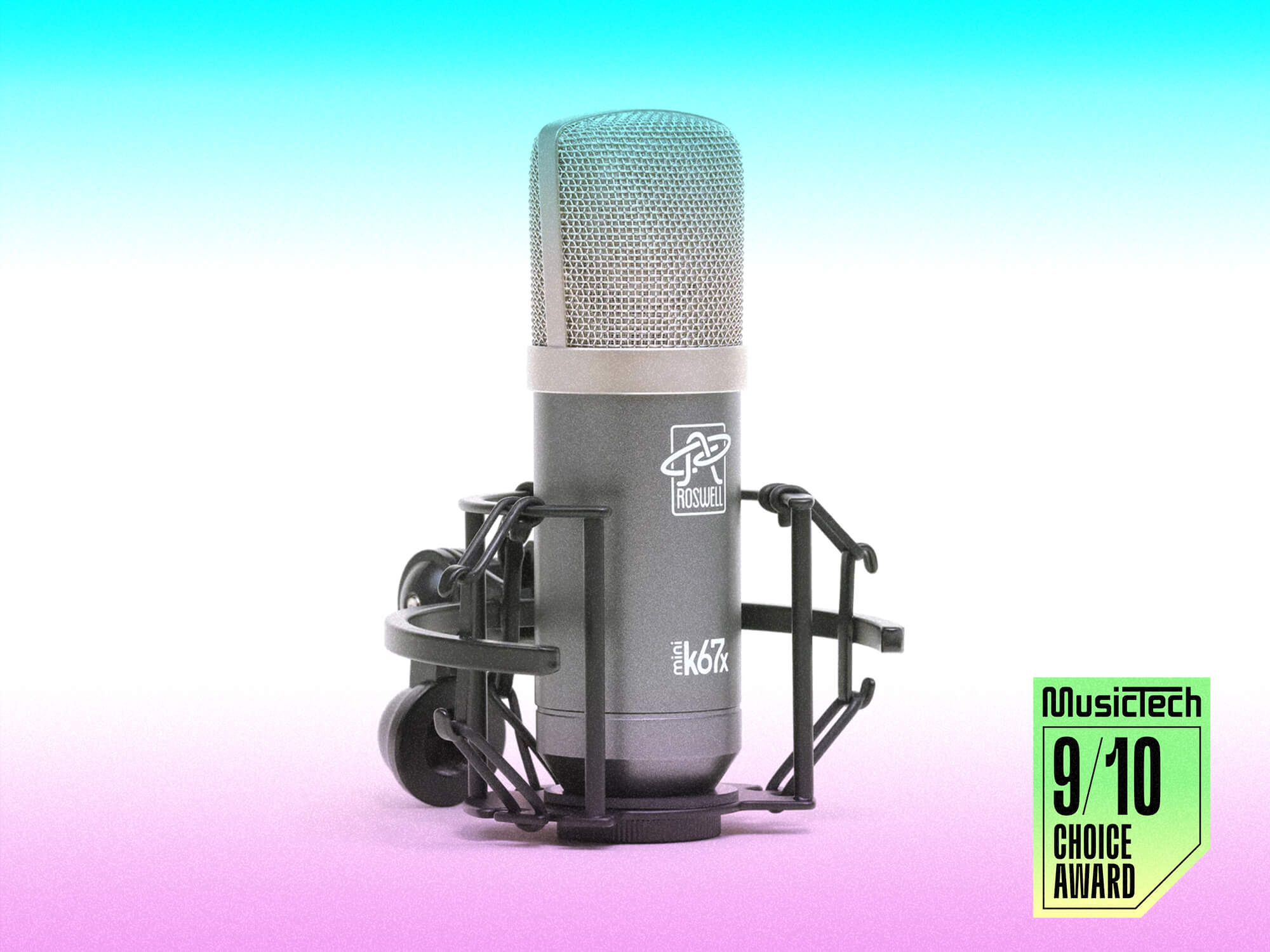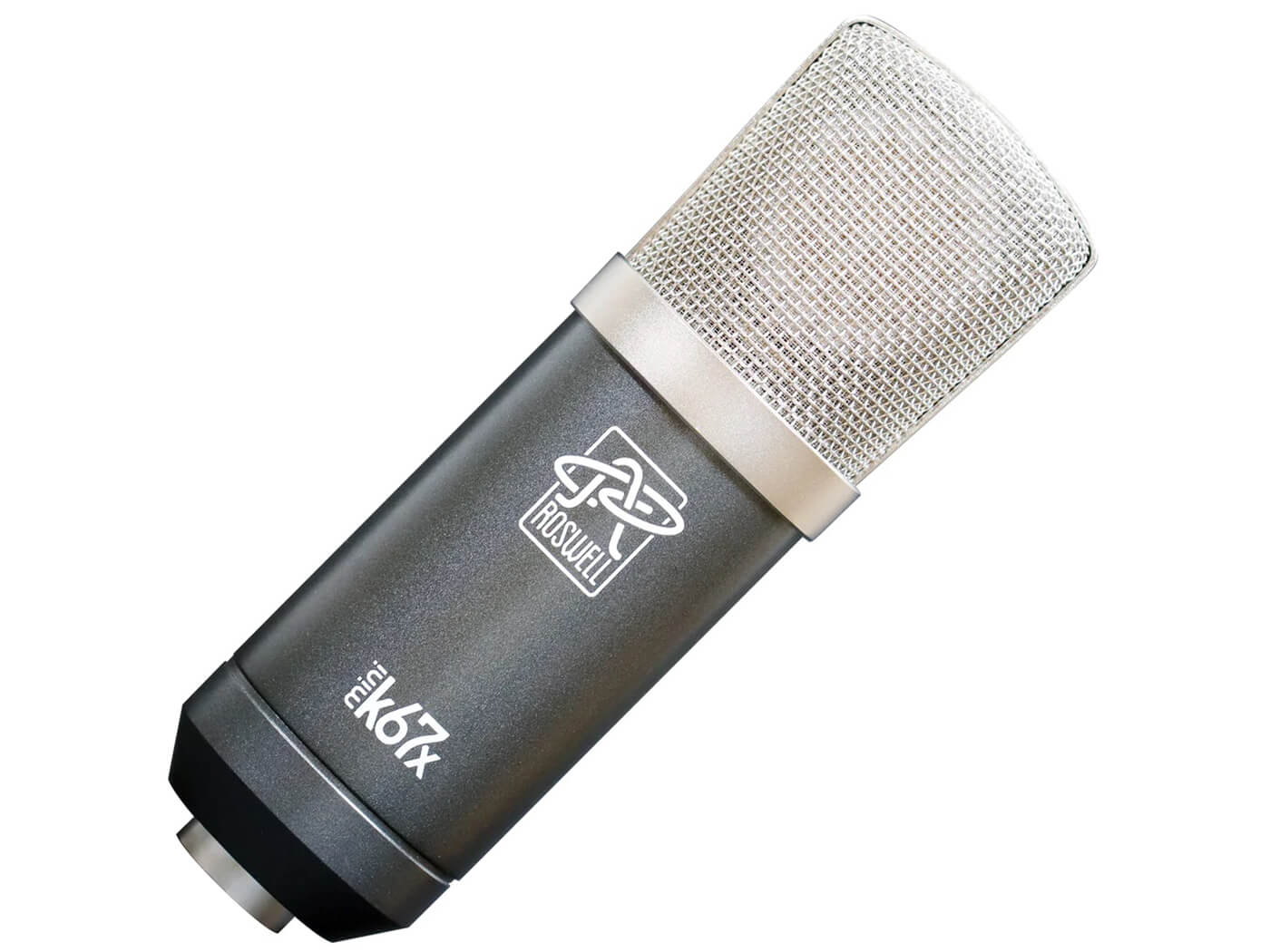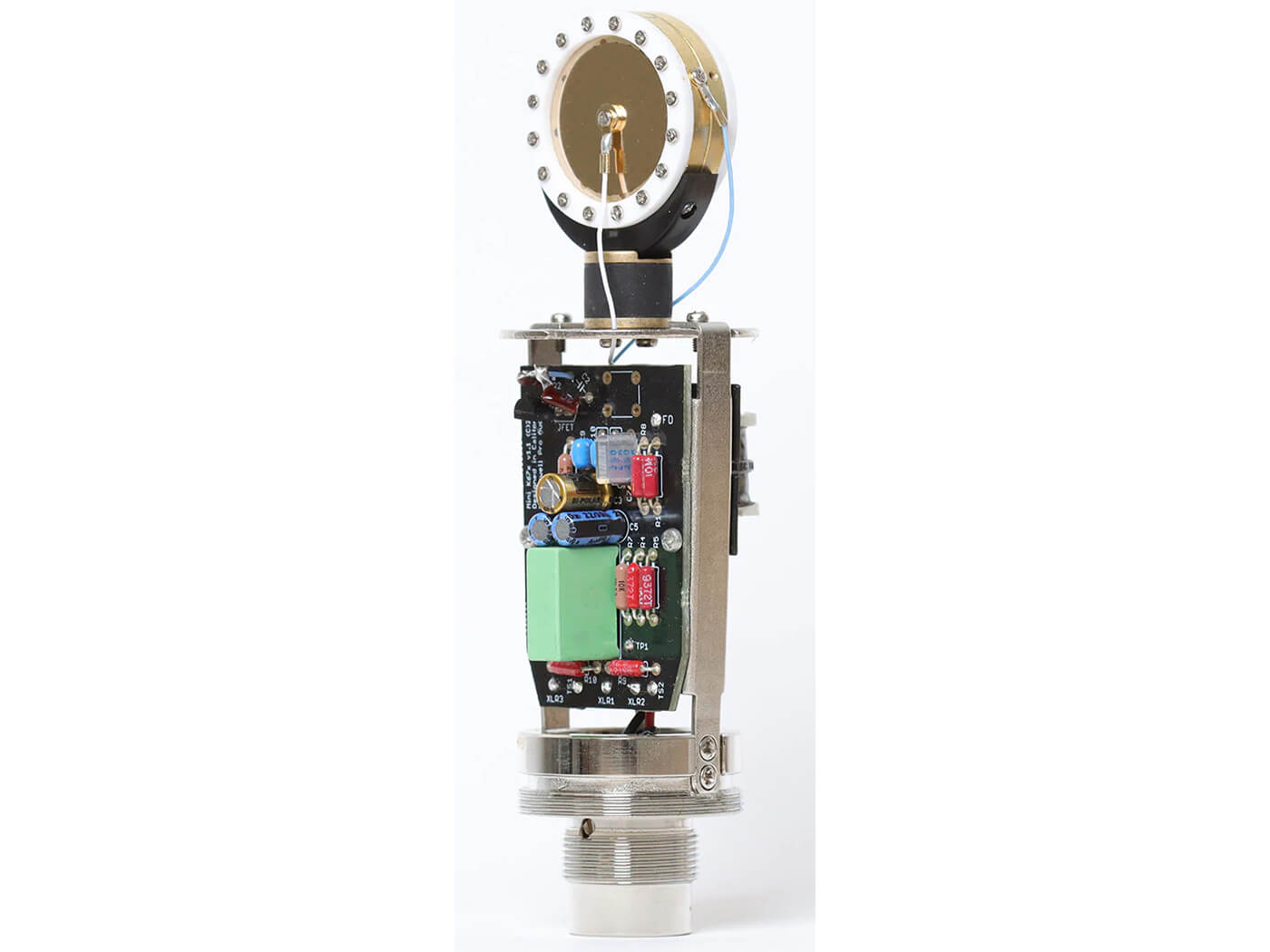Roswell Pro Audio Mini K67x microphone review: Harmonic magic from a mini marvel
Is a transformer-based recreation of an iconic tube microphone a convincing proposition in practice?

Review Overview
Our rating
9
Our verdict
⊕ Flattering harmonic saturation
⊕ Useful accessory bundle
⊕ Sounds far more expensive than it costs!
⊖ More expensive than transformerless competitors
⊖ Less versatile than models engineered for high SPLs
⊖ Lack of pad and high pass might be problematic for some
To call Roswell Pro Audio’s founder Matthew McGlynn a microphone obsessive would be underplaying his passion. Having first collated technical data for thousands of microphones for his Recording Hacks database, he went on to set up the Microphone Parts website offering all sorts of modification packages to improve microphones’ sound, appearance and technical specifications. Unwilling to stop there, Matthew aimed to combine all the best attributes of other mic designs and decided to build his own. Roswell was born, with all products being designed, assembled and tested prior to shipping at its Californian base.
- READ MORE: Show Off Your Studio: Jon1st and Shield team up to create global rave-shaking beats and bass music
The Mini series is an affordable entry into the Roswell sound, with established K47 and K87 models taking influence from iconic German mics with similar model names. The new Mini K67x aims to achieve the harmonic saturation of the equally iconic Neumann U 67 when worked at moderate sound levels, using a custom output transformer rather than a larger (potentially more noisy) tube-based design.

The microphone has a fixed cardioid pattern and a 35mm dual backplate capsule. It’s a no-frills affair as there is no sensitivity pad or high pass filter – Roswell has concentrated on investing on the most crucial components that make up the design rather than adding features that most users will have available on their mic preamp anyway.
Out of the included flightcase and in hand, the mic is super compact but robust and reassuringly heavy. A sturdy cutaway shockmount and fleecy mic sock also come with the bundle and, while our K67x came in the standard dark grey finish, a striking custom finish with metallic blue paint and a metal badge is available for an additional $30.

Testing times
The Mini K67x was put to the test in two of the most frequent condenser mic applications: acoustic guitar and vocals from Jess Hunter.
- On the tenor guitar recording is a detailed pickup of transients, specifically the upper harmonics that make up each note. This brings the sound alive in our treated room, with bright sympathetic resonances that add sustain in a really satisfying way. This kind of lift means it’s not necessary to add as lots of reverb in the mix. The mic keeps proximity under control so placement relatively near to the guitar’s soundhole isn’t problematic in a situation where you need to minimise spill.
- On female vocals, harmonic richness wins over the listener once again, but there’s no distracting sibilance as a result. Pleasing, Neumann-esque mids add fullness where needed, while the amount of proximity is ideal for capturing upfront sounds without excessive boom. This said, we found that an effective pop shield is required to avoid plosives reaching the capsule.
We were truly impressed by the Roswell Mini K67x on everything we tested it on. Rather than being an intangible gimmick, the transformer circuit adds considerable depth and mojo to the already gloriously-voiced K67 capsule. It’s not really an entry-level microphone but other microphones that sound this superb are likely to cost far more. We’re going to miss the marvellous K67x when we return the review unit back to Roswell.
Key Features
- Cardioid condenser
- 34mm K67 capsule
- Custom output transformer
- 13dBA self noise
- Hard case, shockmount and mic sock included
- Dimensions: 150 x 44 mm
- Weight: 380g (mic only)
- $479
- Contact Roswell Pro Audio
- Buy: SX Pro, Floating Point Audio